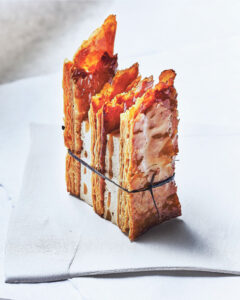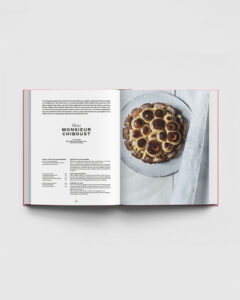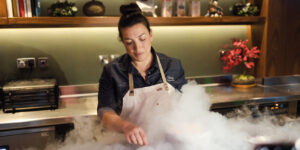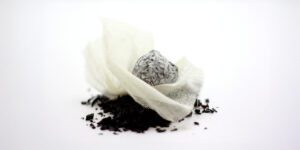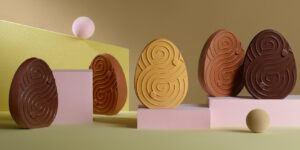Categories Pastry Chef Articles
Origin and purpose of Reasoned Gourmandise, the pioneering pastry concept invented by Frédéric Bau
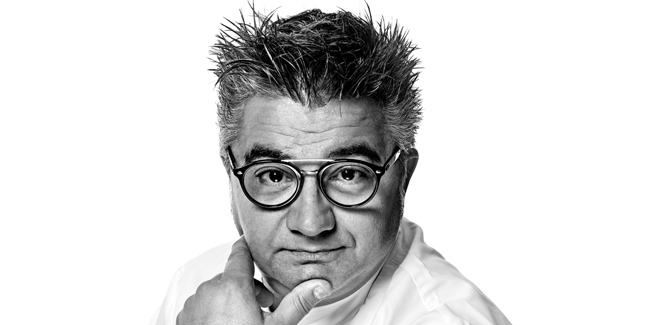
Frédéric Bau revolutionized pastry almost 20 years ago with a novel concept at the time: reasoned gourmandise. A thought he talks about at length in his book Gourmandise Raisonnée, available at Books For Chefs in French and English.
From more than 60 recipes, the book invites you to enjoy a pastry full of flavors and textures, but without excesses, beneficial for the body and for the planet. It includes pastry classics such as Paris-Brest or crème brûlée, in which the distinctive features of the original dessert are maintained, but in a more ‘reasonable’ version. Likewise, the emblematic French pastry chef also proposes new and nutritionally evaluated recipes that will serve as a source of inspiration for readers.
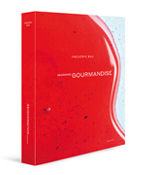
We will now analyze this pioneering pastry concept that has been able to respond to the needs that the sector and society have raised over the years.
Frederic Bau, a great gourmand
Born in 1965 in Lorraine, he made crepes when he was only four years old and remembers his house smelling of caramelized pineapple cakes, caramel flans or Mirabelle plum tart that his mother made. “Having a sweet tooth is probably what led me to become a pastry chef. A condition that I have cultivated, analyzed, and now approach from a different perspective,” he says.
His professional apprenticeship began in 1979 working for Koenig in Metz and then for Auer in Nice. From a very young age, he never stopped asking why a task is done one way and not another. A constant questioning and a search for meaning that has become one of the keys to his professional success.
One of his great mentors was the well-known Metz pastry chef Claude Bourguignon. With him he discovered flavors and textures, being introduced to the world of chocolate and learned to pride himself on being a “seller of happiness”, which is how Bourguignon defines pastry chefs. The other great reference of his was Pierre Hermé, who hired him to work at Fauchon in Paris, taught him to enjoy the good life and to think outside the established canons. Hermé was also the one who recommended Antoine Dodet in 1987 to later create the Valrhona l’Ecole du Grand Chocolat.
“Having a sweet tooth is probably what led me to become a pastry chef. A condition that I have cultivated, analyzed and now approach from a different perspective”
Genesis of the Reasoned Gourmandise concept
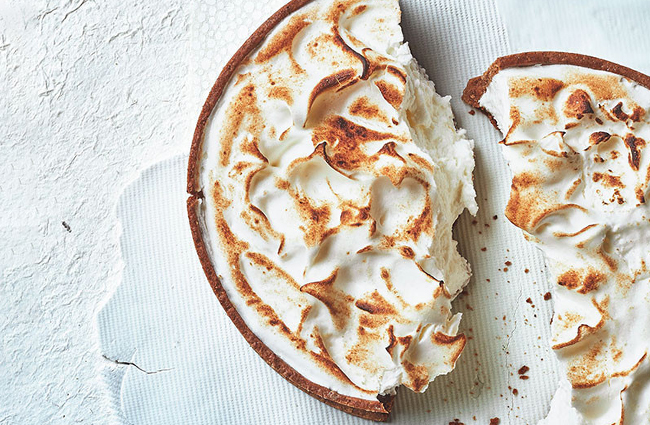
March 2004. Bau is invited to participate as a moderator in a conference on liquid cream and its uses in gastronomy. One of the speakers, the renowned French chef Pierre Gagnaire stated: “if we continue cooking in the same way, keeping our old habits, we will soon be out of date. And let us not forget that we are not only the guarantors of the happiness of our customers, but also those responsible for their well-being”. That statement was the trigger for Bau’s reflections on reasoned gourmandise.
Maximum flavor, goodbye to excesses
But what is his objective in conceiving the concept of reasoned gourmandise? As he himself explains in the book, “addressing the profession from another approach, ethical and healthy, without ever sacrificing the happiness that tasting must provide… Breaking with ancestral norms, redefining the modes of culinary expression with regard to ingredients , techniques, or practices sometimes turned into automatisms, design the future of pastry worldwide”.
However, it is not a method that advocates “without” sugar” or “without fat”. It is not about rethinking a repertoire of existing recipes in order to de-sugar, de-fat, or veganize them. The important thing is to analyze and understand what is behind each recipe, giving priority to flavor and excluding excesses. “It is about going to the same essence, finding a way for our lemon tart to maintain those aromas and that game of textures that is taken away without causing harm to the body and the environment.”
“It is about going to the same essence, finding a way for our lemon tart to maintain those aromas and that game of textures that is taken away without causing harm to the body and the environment.”
Visionary Approach
Undoubtedly, when Bau presented this idea in 2004 to his professional colleagues, his approach was innovative and visionary. As Hermé acknowledges in the prologue, “we found it interesting, but no one was prepared to apply it on a day-to-day basis. For this, it was necessary to make a deep self-criticism of our profession, which has had a tendency towards abundance”. However, the chef perseveringly continued to explore that pastry that wants to give meaning to the recipes taking into account both the flavor and the nutritional contribution of the raw material, enhancing pleasure without foregoing basic ingredients such as sugar or eggs.
